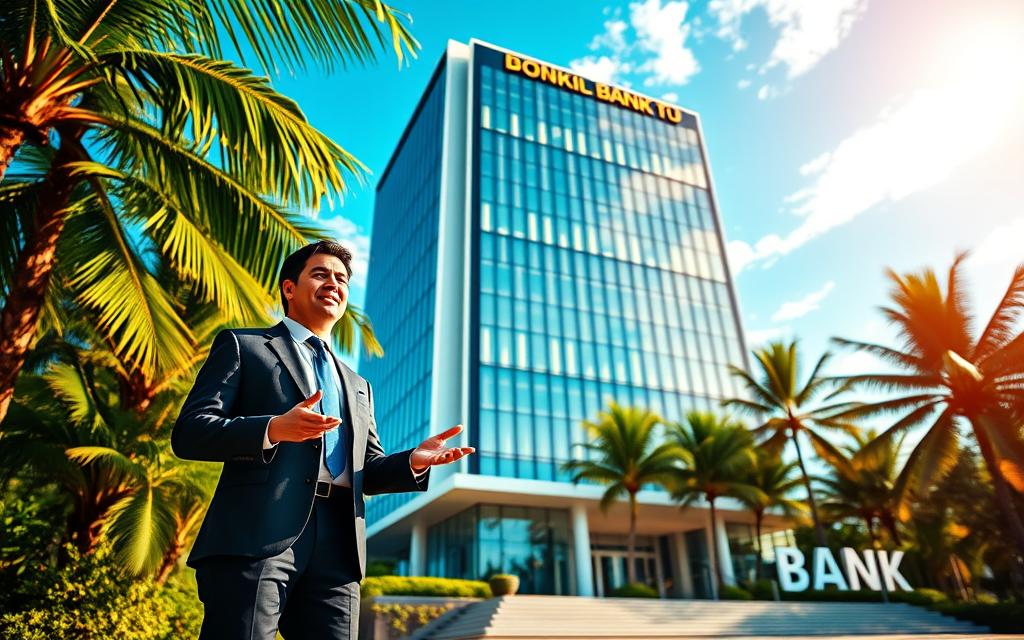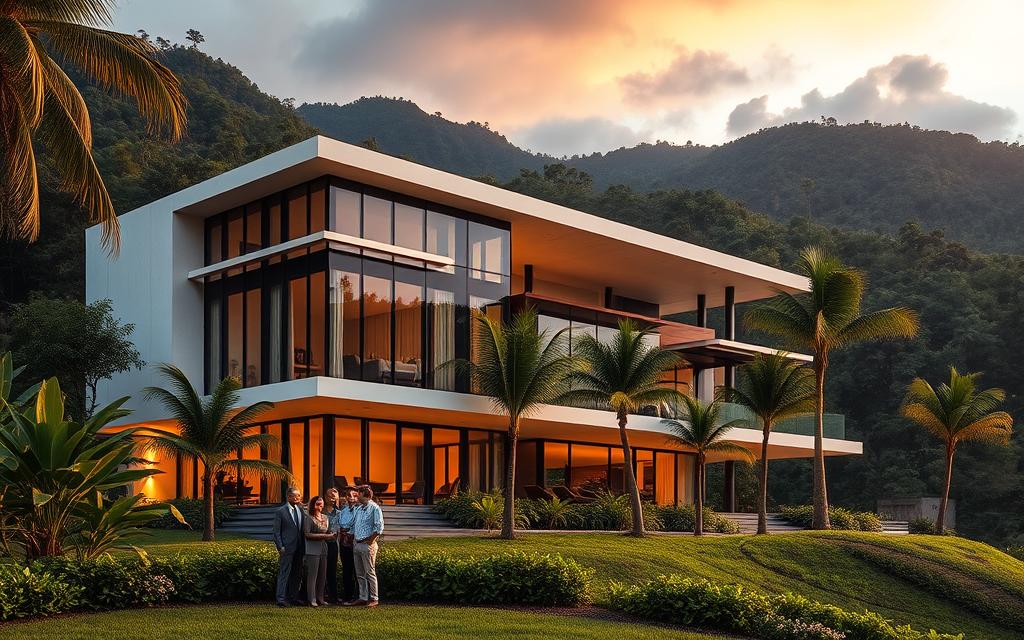Get interest-only-private-loans-in-costa-rica with our private investor network. Enjoy competitive rates, lower fees, and flexible financing options for your investment property.

We Explain Costa Rica Commercial Property Financing Options
Costa Rica continues to attract a growing number of foreign buyers thanks to its stunning natural beauty, eco-conscious culture, and stable economy. According to recent reports, foreign investment in Costa Rican real estate increased by over 20 percent in the past year alone.
At GAP Equity Loans, we offer Costa Rica Home Equity Loans that provide access to significant funds with easier qualification, as your home serves as collateral. We connect borrowers with private investors and lenders, providing competitive rates and flexible financing options.
Our goal is to simplify the process, helping hardworking individuals secure the financing needed to achieve their investment property goals without unnecessary hurdles. We will explore the various financing pathways available to both local and foreign investors looking to purchase commercial real estate in Costa Rica.
The Costa Rica Commercial Property Market Overview
With its diverse landscapes and stable economy, Costa Rica’s commercial property market is poised for continued growth. Investing in Costa Rica real estate has proven to be a smart and rewarding decision for many foreign buyers. The market remains stable with steady property appreciation, especially in sought-after locations like Guanacaste, San José, and coastal towns along the Pacific.
Current Market Trends
Steady growth trends and increasing investment opportunities across different regions characterize the current state of the Costa Rica commercial property market. Properties in key areas have appreciated by 8 to 15 percent annually, driven by strong buyer demand and limited inventory. Tourism growth, infrastructure improvements, and economic stability have all contributed to the market’s resilience.
Popular Commercial Investment Areas
Costa Rica offers a diverse range of commercial properties, including retail spaces, office buildings, hospitality venues, and mixed-use developments. Popular investment areas include San José’s business districts, coastal tourism hubs in Guanacaste, and emerging markets in secondary cities. The location has a significant impact on property values and rental income potential, making some areas more attractive than others for investors.
Challenges for Foreigners Seeking Financing in Costa Rica
Foreign investors often encounter significant hurdles when attempting to secure financing for commercial properties in Costa Rica. While foreigners can legally own property in the country, obtaining financing through local banks is often challenging for non-residents.
Legal Considerations for Foreign Investors
The legal framework governing foreign investment in Costa Rican commercial real estate is crucial for understanding financing options. Foreign investors must comply with specific regulations and may need to establish a local presence or corporate structure to facilitate the financing process. Costa Rican lenders typically require borrowers to be legal residents or have a significant financial footprint in the country.
Documentation Requirements
Foreign buyers must prepare extensive documentation when applying for commercial property financing in Costa Rica. This includes proof of income, credit history, and potentially a Costa Rican co-signer. The documentation requirements can be daunting, and language barriers and cultural differences may complicate the process.
- Proof of income and financial stability
- Credit history reports
- Costa Rican co-signer or local corporate structure
- Additional documentation as required by lenders
Understanding these challenges and preparing accordingly can help foreign investors navigate the complex process of securing financing for commercial properties in Costa Rica.
Traditional Bank Loans for Commercial Properties
When it comes to financing commercial properties in Costa Rica, traditional bank loans are a viable option for both locals and foreign investors. Costa Rica has several reputable banks that offer mortgages and real estate loans, including BAC San José, Banco Nacional, Banco de Costa Rica (BCR), and Scotiabank.

Local Bank Requirements and Processes
The process of securing a commercial property loan through a Costa Rican bank involves several steps, from initial inquiry to final approval. Banks typically require a significant down payment, which can range from 30% to 50% of the property’s value, especially for foreign buyers. The application process also involves providing detailed financial statements, business plans, and property appraisals.
Banks in Costa Rica assess the value of commercial properties to determine the loan-to-value ratio, a critical factor in loan approval. This assessment, combined with the borrower’s financial profile, influences the loan terms and interest rates offered.
Interest Rates and Terms
Interest rates for commercial property loans in Costa Rica vary among banks, typically ranging between 7% and 9.5%. The loan terms can extend from 15 to 25 years, depending on the loan agreement and the borrower’s financial situation. Understanding these rates and terms is crucial for investors to make informed decisions about their commercial property investments.
By comparing the interest rates and terms across different banks, investors can identify the most suitable financing options for their commercial properties in Costa Rica.
Understanding Costa Rica Commercial Property Financing Options
Understanding the nuances of commercial property financing in Costa Rica is crucial for investors aiming to make informed decisions. The goal is to simplify the process, helping hardworking individuals secure the financing needed to achieve their investment property goals without unnecessary hurdles.
Comparison of Financing Alternatives
In Costa Rica, various financing options are available for commercial properties, including traditional bank loans, private lenders, and seller financing. Banks typically require a down payment of 30-50% and offer loans with terms of up to 20 years, accompanied by interest rates ranging from 8.5% to 10%. Private lenders may demand a higher down payment and charge higher rates, while seller financing often requires a 50% down payment with terms of 1 to 3 years and rates of 6-9%. For more information on financing options, you can visit our resource page.
- Traditional bank loans offer longer repayment terms but stricter qualification requirements.
- Private lenders provide quicker access to capital but at higher costs.
- Seller financing offers more flexible terms, directly negotiated between the buyer and seller.
Determining the Best Option for Your Investment Goals
To determine the best financing option, investors must consider their investment timeline, risk tolerance, and capital requirements. Different financing options align with various investment strategies, whether for long-term income generation, property development, or business expansion. By evaluating loan-to-value ratios, repayment structures, and flexibility across different financing alternatives, investors can make informed decisions that match their commercial property investment goals in Costa Rica.
GAP Equity Loans: A Flexible Financing Solution
For investors seeking to diversify their portfolio in Costa Rica, GAP Equity Loans provide a flexible financing solution. These loans allow property owners to leverage their existing real estate assets as collateral to secure funding for commercial investments.
How GAP Equity Loans Work
GAP Equity Loans provide a streamlined approach to financing, differing significantly from traditional bank loans. By using your Costa Rican property as collateral, you can access significant funds with easier qualification. We connect borrowers with private investors and lenders, offering competitive rates and flexible financing options.
Loan Terms and Interest Rates
Loan amounts range from $50,000 to $1,000,000, with interest rates starting at 12% and loan terms spanning from 6 months to 3 years. The loan-to-value ratio and other factors influence the final interest rate offered. Our network of private investors funds these loans, creating more flexibility in underwriting decisions.
GAP Equity Loans are particularly advantageous in time-sensitive investment opportunities or when traditional financing has been declined. By leveraging your property’s equity, you can seize new investment opportunities in Costa Rica’s commercial property market.
Seller Financing in Costa Rica
In Costa Rica’s commercial property market, seller financing emerges as a viable alternative for buyers, particularly non-residents. This financing option allows the property seller to act as the lender, providing financing directly to the buyer.

Benefits and Risks of Owner Financing
Seller financing offers several benefits, including faster closings and flexible qualification requirements. Buyers can negotiate terms directly with the seller, potentially securing more favorable conditions than those offered by traditional lenders. However, there are risks involved for both parties, including legal considerations and the potential for default.
For buyers, the primary risk is the potential for losing the property if they default on payments. Sellers, on the other hand, risk not receiving full payment if the buyer defaults. Proper legal documentation is crucial to mitigate these risks.
Negotiating Favorable Terms
Negotiating the terms of seller financing is critical for both buyers and sellers. Buyers should consider proposing seller financing when it’s not initially offered, highlighting the benefits for both parties, such as a quicker sale and a competitive interest rate.
Typical terms include a down payment of 30 to 50 percent, interest rates between 6 to 8 percent, and loan durations of 3 to 5 years. Buyers and sellers can work together to structure a deal that benefits both, including negotiating interest rates, payment schedules, and balloon payments.
Private Lenders and Hard Money Loans
For investors looking to secure commercial property in Costa Rica quickly, private lenders and hard money loans present a flexible solution. These financing options are particularly useful for buyers who need rapid access to funds or do not meet conventional lending requirements.
Working with Private Investors
Private lenders in Costa Rica, including individual investors and investment groups, offer short-term financing for commercial properties. They typically focus on the property’s value rather than the borrower’s credentials, making them a viable option for investors with less-than-perfect credit or those seeking to close deals quickly. We connect borrowers with private investors and lenders, providing competitive rates and flexible financing options.
Cost Considerations and Approval Process
The cost of private loans in Costa Rica includes interest rates ranging from 10% to 15%, origination fees, and potential prepayment penalties. While these costs are higher than traditional loans, the approval and funding process is significantly faster, often taking just a few days. Understanding these costs and the streamlined approval process is crucial for investors to make informed decisions about using private lenders for their commercial property financing needs.

Application Process and Required Documentation
Navigating the application process for commercial property financing in Costa Rica can be complex, but understanding the requirements is key to success. The process involves several steps and requires a significant amount of documentation.
Preparing Your Loan Application
To increase your chances of securing financing, it’s crucial to present a strong financial profile. This includes providing a valid passport, proof of income, tax returns, credit reports translated into Spanish, bank statements, and an official property appraisal. GAP Equity Loans offers hard money loans for foreigners in Costa Rica, providing an alternative financing option.
- Financial statements and business plans
- Property information and personal identification
- Legal review of the property title
- Use of an escrow account for fund transfers
Common Approval Obstacles and How to Overcome Them
International lenders typically prefer borrowers with credit scores above 700, while local banks emphasize stable income and financial history. Common obstacles include poor credit history, insufficient income, and inadequate documentation. To overcome these challenges, buyers should focus on improving their credit score, ensuring all documentation is complete and accurate, and demonstrating a stable financial history.
- Improving credit scores
- Ensuring complete and accurate documentation
- Demonstrating stable income and financial history
Conclusion
Securing the right financing is crucial for investors looking to capitalize on Costa Rica’s thriving commercial property sector. We have explored various financing options available for commercial property investors, including traditional bank loans, GAP Equity Loans, seller financing, and private lending arrangements. Each of these options has its unique advantages and is suited to different investment goals and circumstances.
Thorough due diligence and professional guidance are essential when navigating Costa Rica’s commercial property financing landscape. By understanding the local laws and requirements, investors can make informed decisions and avoid common financing obstacles. At GAP Equity Loans, we are dedicated to connecting borrowers with the ideal financing solutions to help them achieve their investment goals.
For personalized financing assistance, don’t hesitate to get in touch with us at www.gapequityloans.com, or reach out via WhatsApp +(506)-4001-6413, USA/Canada (855)-562-6427, or email [email protected]. With the right financing knowledge and professional support, commercial property investment in Costa Rica becomes accessible and rewarding.
Article by Glenn Tellier (Founder of CRIE and Grupo Gap)



